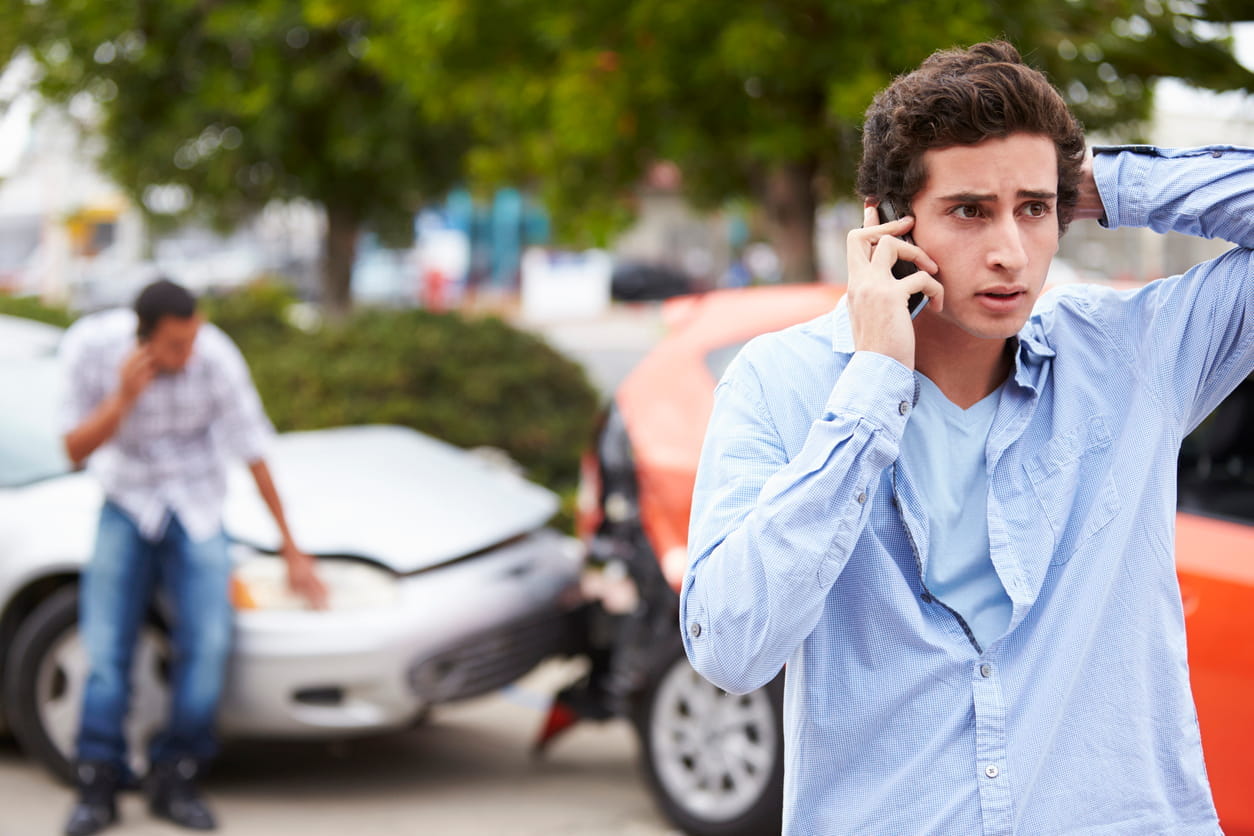
How to Protect Yourself from Auto Accident Fraud and Scams
December 12, 2024Auto accidents are stressful enough without the added worry of being scammed. Unfortunately, auto accident fraud and scams have become brazen, costing every U.S. driver $100 to $300 more in annual auto insurance premiums.
Scammers often target unsuspecting drivers, blaming them for accidents like fender benders or fake injuries. Whether you’re on a quiet road in Wisconsin or navigating busy city streets, knowing how to protect yourself can save you from financial and legal trouble.
In this quick read, we’ll help you recognize common auto accident fraud and scams and how to protect yourself.
Table of Contents
What Is Auto Accident Fraud?
Auto accident fraud and scams occur when someone deliberately stages or fabricates a car accident to exploit victims for financial gain. These scams can involve faked injuries, false insurance claims, and even organized crime rings.
As a driver, you may get targeted simply for being in the wrong place at the wrong time. Recognizing how scammers target innocent victims is the only way to stay away from potential fraud.
Common Types of Auto Accident Fraud and Scams
Auto accident fraud and scams have been around for many years, but we’ve seen a spike in these incidents recently. You can typically find them in areas with congested traffic, where it’s easier to stage an accident or fake injuries.
1. The Staged Accident
Staged accidents are among the most common and egregious scams, costing insurance companies roughly $20 billion annually. In these scams, the fraudsters deliberately cause an accident. They might slam on the brakes unexpectedly or force you to rear-end them by cutting in front of your vehicle. Afterward, they may exaggerate or fabricate injuries to file inflated insurance claims.
These auto accident fraud and scams include:
- Drive Down: A scammer waves you forward at an intersection but then crashes into your car and denies signalling.
- Panic Stop: The fraudster brakes abruptly, often in traffic, causing you to rear-end them.
- Sideswipe: A scammer intentionally sideswipes your car during a lane merge.
- Swoop and Squat: One car “swoops” in front of you, forcing you to brake, while another car “squats” beside you, leaving no room to avoid a crash. The scammers then blame you for the accident.
- Backup Scam: The scammer backs up into your vehicle, claiming you rear-ended
2. The Phantom Witness or Passenger
In this scenario, a fake witness appears to corroborate the scammer’s version of events. This individual may falsely testify that you were at fault, strengthening the scammer’s claim. Likewise, a phantom passenger may appear out of nowhere and claim to suffer injuries, scamming your insurance company into paying for them.
3. Exaggerated Damages and Injuries
After a legitimate accident, the other party might exaggerate their injuries or vehicle damage to inflate the insurance payout. They may even enlist unscrupulous doctors or mechanics to bolster their claims. Sometimes, the scammers may claim compensation for pre-existing injuries or damages.
4. Fake Towing Services
In these auto accident frauds and scams, the perpetrators may show up at the accident scene posing as legitimate tow truck operators. Whether or not your accident is real, they’ll tow your car to a shop that’s part of the scam and charge exorbitant fees. These inflated repair costs often send your insurance premiums through the roof.
How to Protect Yourself from Auto Accident Fraud and Scams
Fraudsters use different ways to scam drivers into thinking they caused the accident. However, being careful can help you stay one step ahead of fraudsters.
Here’s what you can do:
1. Drive Defensively
Defensive driving is probably the best way to avoid becoming a target. So, when you are behind the wheel, stay alert, maintain a safe following distance, and avoid distractions like texting or eating while driving.
2. Use a Dash Cam
Invest in a good-quality dashboard camera to provide valuable evidence should you get in an accident. A dashcam captures the events leading up to and during the crash, making it harder for fraudsters to fabricate claims.
3. Document Everything
If you’re involved in a crash:
- Take photos of the vehicles, the accident scene, and any visible injuries.
- Note the license plates, make, and model of the other vehicles involved.
- Collect contact information from the other driver, passengers, and any witnesses.
- Ask for a copy of the police report.
1. Call the Police
Always report the accident to the police, even if it’s a minor fender bender. Having an official record can deter scammers and provide evidence for your insurance claim.
2. Avoid Admitting Fault
When it comes to a car crash, even a casual apology can be used against you. Stick to the facts when speaking to the police or insurance representatives. Do not exaggerate or accept your fault during the conversation. When speaking with the police or insurer, have your auto accident lawyer present.
3. Be Cautious with Tow Trucks and Repair Shops
Only use towing services and repair shops approved by your insurance company. If a tow truck arrives unsolicited, verify its legitimacy before accepting help. They might be fraudsters trying to scam you into paying excessive repair costs.
4. Consult an Auto Accident Lawyer
If you suspect fraud or feel overwhelmed by the claims process, call an auto accident lawyer who can walk you through the complexities. They’ll ensure your rights are protected and help you build a strong case if disputes arise.
5. Watch Out for Red Flags
Recognizing these red flags can help you avoid auto accident fraud and scams:
- Drivers or passengers who seem overly eager to exchange personal information.
- Witnesses who appear out of nowhere and insist they saw the accident.
- Phantom passengers who claim to have been injured in the crash.
- People who pressure you to settle the matter without involving the police or insurance.
- Medical providers or mechanics referred by the other driver.
Final Thoughts
Staying informed and vigilant is your best defense against auto accident fraud and scams. Keep an eye out for these common tactics used by fraudsters and take steps to protect yourself and your loved ones. Should the worst happen, don’t hesitate to contact a competent car accident lawyer immediately. Their legal guidance can make all the difference in helping you stay ahead of the fraudsters.








